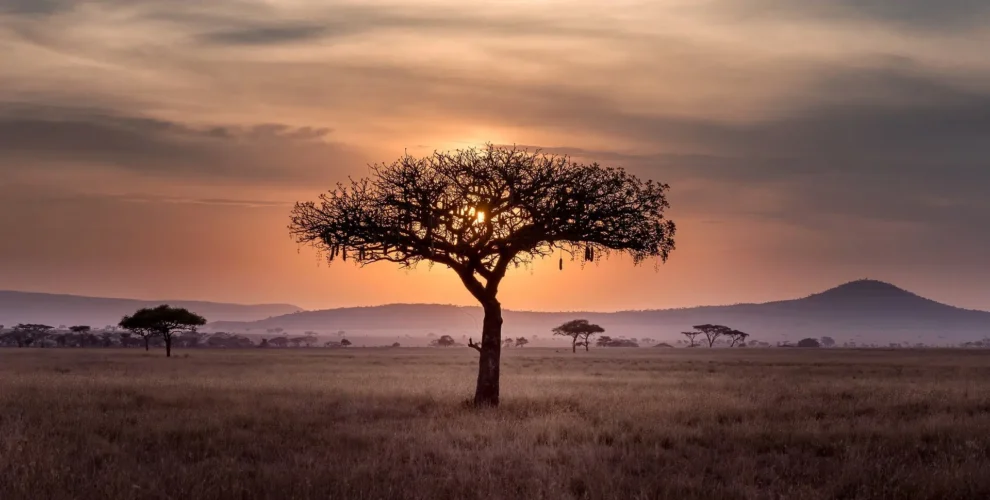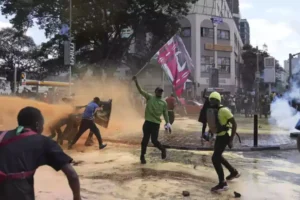It is widely agreed that Africa is the continent with the greatest amount of material wealth in the world. According to World Atlas, Africa has the richest concentration of natural resources of any continent, including possessing exclusive ownership of nearly half of the world’s gold and one-third of the world’s entire mineral reserves.
Africa produces 90% of the world’s chromium and platinum. By comparison, Africa holds 12 percent of the world’s oil reserves and 8 percent of its natural gas reserves.
Despite Africa’s abundant minerals, including cobalt deposits in the Democratic Republic of the Congo, lithium reserves in Zimbabwe, and tantalum deposits in Rwanda, security has remained an issue.
The state of African continental stability leaves much to be desired, despite Africa’s innate potential to boost its socio-economic returns through seamless supply chain procedures. In the year 2021 alone, violent coups occurred in Mali, Chad, Sudan, Burkina Faso, and Guinea, not to mention CAR, Ethiopia, and Guinea-Bissau. During 2020, 30 state-based conflicts were recorded in Africa.
A total of 15 clashes occurred over territory access. The rise and expansion of the Islamic State (IS) led to domestic terrorism-related conflicts in 12 African countries in 2021 – Burkina Faso, Burundi, Cameroon, Central African Republic, Democratic Republic of Congo, Ethiopia, Mali, Mozambique, Niger, Nigeria, and Somalia.
A number of key trends shows an increase in non-state conflicts across Africa. Since 1989, conflict-based datasets have been used to compile conflict-related statistics in Africa, and the number of deaths resulting from low-intensity conflicts has increased ever since.
African conflicts: Causes and consequences
The significant drivers of conflicts in Africa include latent coagulation of violent extremism and the proliferation of armed non-state groups such as Boko Haram, which has spread from Nigeria across the Lake Chad region. Central Africa and Burkina Faso are also conflict-ridden hotspots in Africa affected by state-based conflicts.
In Central Africa, the extensive period of political intransigence has been accompanied by insecurity and political violence in the eastern provinces; Burkina Faso, on the other hand, is plagued by a long-standing conflict with heavily armed Islamist groups, clashes between armed ethnic and Islamist groups, and intercommunal violence.
Doubtless, the cumulative quota of these ongoing conflicts across the African hotbed comes with excruciating human and material losses. In 2019 alone, Burkina Faso recorded about 2,000 conflict-related deaths, while more than 1,800 people died in Cameroon due to state and non-state-based conflicts. The number of deaths arising from conflict in Somalia was about 4,000, while the number of deaths arising from conflicts in Nigeria was about 6,000. In the Democratic Republic of Congo, violent clashes have claimed the lives of more than 3,800 people.
The human losses from violent clashes in Africa aside, the material losses are no less intractable. The World Bank confirms that one in five Africans goes to bed hungry, while about 140 million Africans face acute food insecurity. While food insecurity across Africa significantly stems from the impact of climate change and the knock-on effects of the Covid-19 pandemic, the consequences of violent clashes in many African regions bear their brunt on the breakfast table of many Africans, too.
The Africa Center for Strategic Studies declares that “conflict remains the dominant driver of Africa’s spiraling food crisis. The Center notes, rather poignantly, that more than 80 percent of the 137 million Africans facing acute food insecurity are in conflict-affected countries. This reality underscores that conflict continues to be the “primary driver” of Africa’s food crisis, as revealed that over 111 million Africans facing food insecurity are in conflict-ridden countries.
Deaths and disruptions to food supply systems caused by non-laxative conflicts – whether by violent extremism, communal clashes, or political motivations – are but a fraction of what armed conflicts have done to Africa’s supply chain.
From a social harmony standpoint, conflicts also erode cohesion in many civil African societies, violating trust and destroying commerce and industry. Political economist, Francis Fukuyama, has detailed extensively how trust creates prosperity in a society. In the seminal work “Trust: The Social Virtues and The Creation of Prosperity,” Fukuyama says that trust and working with others are necessary for economic success.
He affirms that social trust, which he calls “social capital,” may even be as important as physical capital and that only those societies with a high degree of social trust will be able to create the “flexible and large-scale business organizations” that are needed to compete in the new global economy. Given the spate of violent conflicts on the continent, the social capital embedded in the African supply chain industry is low.
Reducing the impact of devastating conflicts on the African supply chain industry
Even though violent conflicts continue to plague the economic spine of Africa, there is much more to come for the African supply chain. Relevant stakeholders in Africa can work together to reduce the endemic effects of violent conflicts in the region’s supply chain system.
In order to reduce the impact of conflict on Africa’s intricate supply chain of goods and services, the following are proposed:
1. Promoting long-lasting peace through dialogue, diplomacy, and mediation
Laying aside the innumerable weapons of warfare, African countries must begin to embrace dialogue as a winning conflict resolution medium. And the dialogue is by no means simplistic. The outsized success of the “Maputo Accord for Peace and National Reconciliation (Maputo Accord)” is proof that constructive dialogue can end many state-based conflicts on the African continent.
The Maputo Accord, signed in August 2019, facilitated the end of years of civil conflict in Mozambique between the ruling party, the Mozambique Liberation Front (FRELIMO), and the Mozambique National Resistance (RENAMO). Since the signing of the Maputo Accord, Mozambique has enjoyed relative peace and national reconciliation, thereby improving its economic fortunes and supply chain systems.
2. Defeating poverty and economic degradation
Economic experts have been outspoken about the dangers of economic degradation and its inexorable connection to poverty and terrorism since 1945. In his speech, while advocating for US economic assistance to Europe after the 2nd World War, America’s Secretary of State, Anthony Marshall, stated that “it is logical that the United States should do whatever it can do to assist in the return of normal economic health in the world, without which there can be no political stability and no assured peace.”
In the current context of African security, those words are directly applicable. It is imperative for African governments to raise living standards in order to combat poverty on the continent. Because in most cases, economic stability is a corollary of political stability. A major contributor to reducing the allure of violent conflicts on the continent is the fight against poverty.
Conclusion
Conflict has a wide range of effects on Africa’s supply chain networks. Nevertheless, they can be managed. Through dialogue and a commitment to economic prosperity, African governments can reduce violent conflicts on the continent and improve their supply chain systems.
Source: Business Day
















